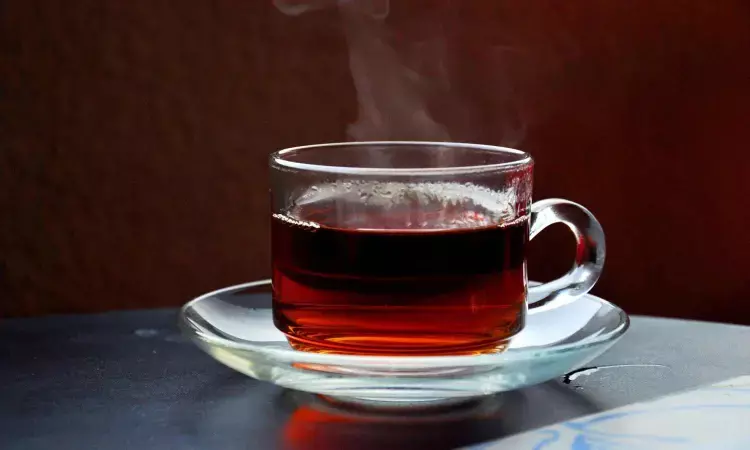- Home
- Medical news & Guidelines
- Anesthesiology
- Cardiology and CTVS
- Critical Care
- Dentistry
- Dermatology
- Diabetes and Endocrinology
- ENT
- Gastroenterology
- Medicine
- Nephrology
- Neurology
- Obstretics-Gynaecology
- Oncology
- Ophthalmology
- Orthopaedics
- Pediatrics-Neonatology
- Psychiatry
- Pulmonology
- Radiology
- Surgery
- Urology
- Laboratory Medicine
- Diet
- Nursing
- Paramedical
- Physiotherapy
- Health news
- Fact Check
- Bone Health Fact Check
- Brain Health Fact Check
- Cancer Related Fact Check
- Child Care Fact Check
- Dental and oral health fact check
- Diabetes and metabolic health fact check
- Diet and Nutrition Fact Check
- Eye and ENT Care Fact Check
- Fitness fact check
- Gut health fact check
- Heart health fact check
- Kidney health fact check
- Medical education fact check
- Men's health fact check
- Respiratory fact check
- Skin and hair care fact check
- Vaccine and Immunization fact check
- Women's health fact check
- AYUSH
- State News
- Andaman and Nicobar Islands
- Andhra Pradesh
- Arunachal Pradesh
- Assam
- Bihar
- Chandigarh
- Chattisgarh
- Dadra and Nagar Haveli
- Daman and Diu
- Delhi
- Goa
- Gujarat
- Haryana
- Himachal Pradesh
- Jammu & Kashmir
- Jharkhand
- Karnataka
- Kerala
- Ladakh
- Lakshadweep
- Madhya Pradesh
- Maharashtra
- Manipur
- Meghalaya
- Mizoram
- Nagaland
- Odisha
- Puducherry
- Punjab
- Rajasthan
- Sikkim
- Tamil Nadu
- Telangana
- Tripura
- Uttar Pradesh
- Uttrakhand
- West Bengal
- Medical Education
- Industry
Black tea and berries could contribute to healthier aging, suggests study

Higher intakes of black tea, berries, citrus fruits and apples could help to promote healthy ageing, new research has found.
This study conducted by researchers from Edith Cowan University, Queen’s University Belfast and Harvard T.H. Chan School of Public Health, found that foods rich in flavonoids could help to lower the risk of key components of unhealthy ageing, including frailty, impaired physical function and poor mental health.
“The goal of medical research is not just to help people live longer but to ensure they stay healthy for as long as possible,” ECU Adjunct Lecturer Dr Nicola Bondonno said.
“We know from previous research that people who have a higher flavonoid intake tend to live longer, and they are also less likely to get any of the major chronic diseases such as dementia, diabetes or heart disease.
“Our research shows that people who consume more flavonoids tend to age better.”
The study, which analysed data from 62,743 women and 23,687 men over 24 years, found that women with the highest flavonoid intakes had a 15% lower risk of frailty, a 12% lower risk of impaired physical function, and a 12% lower risk of poor mental health compared to those with the lowest intakes. While fewer associations were observed in men, higher flavonoid intake was still linked to a lower risk of poor mental health.
“Flavonoids are well known for reducing oxidative stress and inflammation, supporting blood vessel health, and even helping to maintain skeletal muscle mass - all of which are important for preventing frailty and maintaining physical function and mental health as we age,” said senior author, Professor Aedin Cassidy from Queens University Belfast.
She added that regularly consuming flavonoid-rich foods - such as berries, apples, red wine, oranges, and tea - could support healthier aging by reducing the risk of frailty, physical decline, and poor mental health. The stronger associations observed in women may be due to differences in follow-up time between the two cohorts rather than true sex-specific effects, which remain underexplored in existing research.
“We found that participants who increased their intake of flavonoid-rich food by three servings a day, had a 6% to 11% lower risk across all three of the ageing outcomes in females, and a 15% lower risk of poor mental health in males.
“Overall, these findings underscore the potential for simple dietary modifications to impact overall quality of life and contribute to the optimisation of healthy aging,” added Professor Eric Rimm from Harvard T.H. Chan School of Public Health.
Reference:
Nicola P Bondonno, Yan Lydia Liu, Francine Grodstein, Eric B Rimm, Aedín Cassidy, Associations between flavonoid-rich food and flavonoid intakes and incident unhealthy aging outcomes in older United States males and females, The American Journal of Clinical Nutrition,https://doi.org/10.1016/j.ajcnut.2025.02.010.
Dr Kamal Kant Kohli-MBBS, DTCD- a chest specialist with more than 30 years of practice and a flair for writing clinical articles, Dr Kamal Kant Kohli joined Medical Dialogues as a Chief Editor of Medical News. Besides writing articles, as an editor, he proofreads and verifies all the medical content published on Medical Dialogues including those coming from journals, studies,medical conferences,guidelines etc. Email: drkohli@medicaldialogues.in. Contact no. 011-43720751


